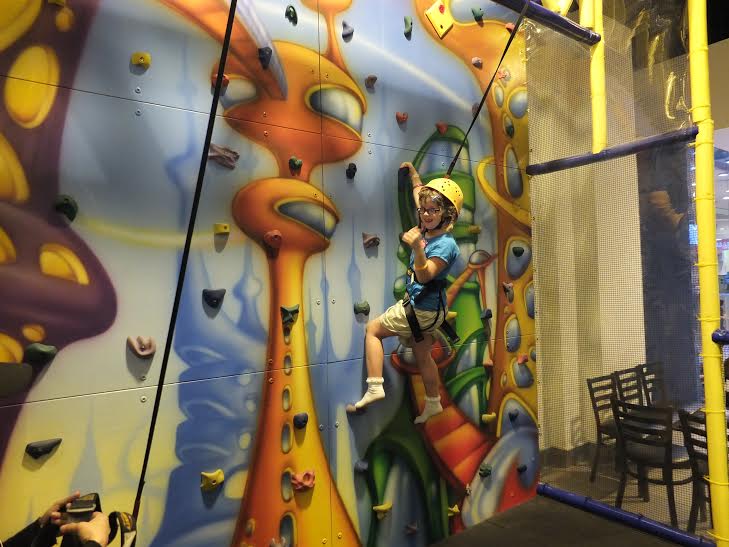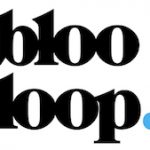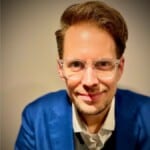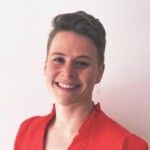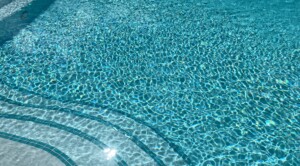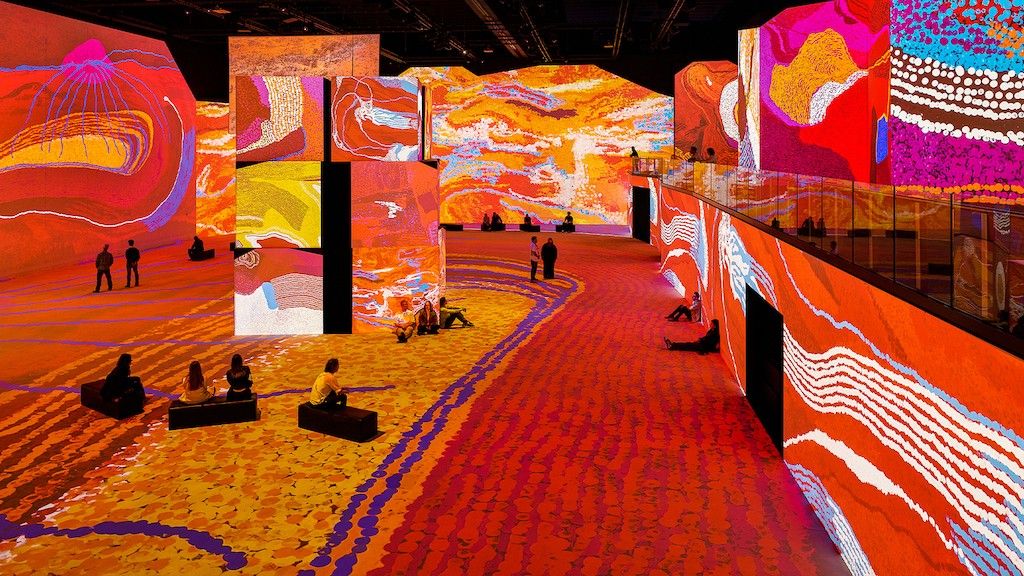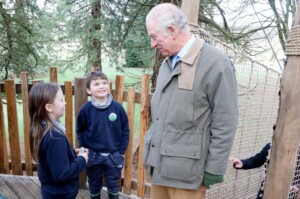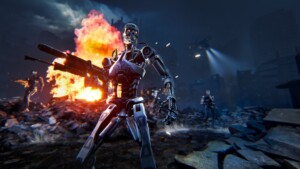John Becker, General Manager at Al Mana Fashion Group in Qatar is tasked with the formidable job of building Al Mana Fashion Group’s entertainment division from scratch, which involves creating exciting new entertainment options in shopping malls and mixed-use developments as well as impressive standalones.
 He spoke to Blooloop about his career path, the entertainment industry, and the evolution of malls in the Middle East into something much more than a shopping destination.
He spoke to Blooloop about his career path, the entertainment industry, and the evolution of malls in the Middle East into something much more than a shopping destination.
“I kind of fell in love with the whole appeal of Operations”
Becker’s own acquaintance with the industry began as a customer – as a five-year-old he visited Chuck E Cheese and as he grew older he went to Cedar Point. After graduating from college he switched sides, beginning in the manufacturing side of the business building video and redemption games at Innovative Concepts and Entertainment in Buffalo, NY.
“I was in the service department for almost seven years. I started off soldering circuit boards and worked my way through the tech room to becoming technical services manager for the last five years of my stint there. I travelled to trade shows; I went to a lot of the customers’ locations and did training on our product for the technicians and, to some extent, the owners.”
It was when he was in charge of Tech Services that Becker got an overview of the entire industry.
“There are a few sides to this industry. I kind of fell in love with the whole appeal of Operations. When you’re in the service side of the business you deal with problems all day, and they’re generally within a certain parameter. Your day doesn’t really vary much. But for the operators it was constantly changing: they were opening up new stores; getting and putting in new equipment; different times of the year were busier…It seemed to me to be the better side of the business.”
Dave and Buster’s
Becker made the switch to the Operations side of the industry in 2005, taking a job with Dave and Buster’s in the US.
 “I left the manufacturing side and went through one of the most rigorous training programmes in the industry: Dave and Buster’s really had their orienteering and training systems down pat. So I went through that and started working in a store in Maryland.”
“I left the manufacturing side and went through one of the most rigorous training programmes in the industry: Dave and Buster’s really had their orienteering and training systems down pat. So I went through that and started working in a store in Maryland.”
However, Becker hadn’t been long out of his probationary period when an opportunity arose.
He got a call from a friend with whom he’d worked when still in the manufacturing side, from Magic Planet in Dubai. He had heard Becker had gone into Operations, and was looking for someone to head up the technical side of Magic Planet’s operation.
Becker wasn’t sure if he was ready for such a move, but was persuaded to go – along with his wife – to Dubai to take a look, attend an interview, and make an informed decision.
“Now, I’d been to Dubai before. It’s a very lovely city; very futuristic: it had a bit of an appeal. I have a German wife, so being in the States wasn’t necessarily an issue, so I took him up on the offer. We went to Dubai and I was interviewed in the morning; they took me to all the different sites they had; I went to Ski Dubai; and at the end of it they offered me a job. It was very lucrative and I decided to go with it.”
Magic Planet
He resigned from Dave and Busters, and moved to the Middle East within a month.
 “I remember looking out of the window of the airplane taking off from Washington DC … at the East Coast of the United States disappearing, and thinking ‘I wonder when I’ll see the lights of New York again.’”
“I remember looking out of the window of the airplane taking off from Washington DC … at the East Coast of the United States disappearing, and thinking ‘I wonder when I’ll see the lights of New York again.’”
In fact, the Middle East was to give Becker’s interest in developing concepts full scope for expression.
Magic Planet, based in Dubai, also had outposts in Egypt, Oman and in the UAE at the time, and has expanded since Becker left. He says:
“It was a really good experience for me – though I kind of took a step back for a while – it was a more technical-heavy position.”
However, before long the opportunity arose for Becker to take on the role of Operations Manager at the Mall of the Emirates store, as well as being in charge of the technical side.
“I was with Magic Planet for two years, and for the second of those I was also running the Mall of the Emirates store.”
Malls in the Middle East
.jpg)
FECs (Family Entertainment Centres) are an invaluable addition to any mall, but Becker points out that it is vital to understand that a mall in the Middle East is quite a different entity from a mall in the western world.
One of the first things he learned in the Middle East was that one has to discard any preconceptions about how malls operate or the patterns of shoppers, and start from scratch. This is for a number of factors. One is the heat. Another is the culture: men and women don’t really socialise unless married or family members.
The mall concept started in the States, then spread to Europe where they were built along similar lines. When the Middle East began to build malls, they had to be different: community centres – the evolution of the village green – and a destination in their own right.

The first mall that he dealt with in the Middle East, Deria City Centre Mall, had a large lifestyle proportion and was a far cry from anything he’d come across in the States.
“The mall next to my home in Buffalo was just basically a long strip. It had a food court; it had a cinema; a Kahunaville. It was very basic. Kids might go there, but as a parent or as an individual I would go to the mall maybe once a month, and I .jpg) knew what I wanted: I would go in, get what I needed, get out. In the Middle East, people go there even if they’re not shopping. They’ll go there and just walk around. It’s an air-conditioned thoroughfare, and they’ve been built either in a very ornate and fancy style or to make you feel as if you’re outdoors.
knew what I wanted: I would go in, get what I needed, get out. In the Middle East, people go there even if they’re not shopping. They’ll go there and just walk around. It’s an air-conditioned thoroughfare, and they’ve been built either in a very ornate and fancy style or to make you feel as if you’re outdoors.
“I would say we go to the mall in the Middle East easily four times a week. Maybe only one or two of those times are we actually buying anything. We might just go there to walk. We might go there to meet friends and have a coffee. It’s much more than a retail destination. They have entertainment centres – basically indoor theme parks; they’ll have a good cinema; they might have residential units attached or next door. They’re even building office towers attached to a mall. So it’s a centre; a hub. And if you take a look at Doha, a town of two million people, total, there are more shopping malls here than in all of Western New York.”
Tamdeen Group’s 360 Mall

In 2007, Becker moved on to Kuwait to work for Tamdeen Group’s 360 Mall.
This was a fascinating opportunity for him – they had 10, 000 square metres inside a new mall, and wanted something that would be completely different from anything that had been done in the region at the time.
“We were able to put in a really intense theme that wasn’t based on anything – it wasn’t based on a pirate theme, or an underwater theme, or a mouse theme… Really, the individual was the theme. There were a lot of LED walls; a lot of digital signage; UV lighting; smoke machines, fog – it was a very interesting group to work for; they pretty much let us do whatever we wanted. And we opened up the doors to Infunity in 2010 and won the Brass Ring for FEC International, so I was pretty proud to be part of that team.”
At that time, as General Manager, Becker did everything from helping work with the consultants to get the design done; documents; procurement; hiring staff; monitoring construction; doing all the training; setting up the equipment.
 “The machines don’t come out of the box ready to go. Someone has to set them: variables such as – if it’s a ride – how long the ride should go on; in the case of games, how many minutes should the player get; how difficult should it be, and so on.”
“The machines don’t come out of the box ready to go. Someone has to set them: variables such as – if it’s a ride – how long the ride should go on; in the case of games, how many minutes should the player get; how difficult should it be, and so on.”
In 2011, once the place was open and the operations up and running, there were no new projects in the pipeline. Becker says, “For me, there was something about setting up a new store. That experience in Kuwait really opened my eyes to exactly what I wanted to do, and that was to develop and open concepts for clients.”
Al Mana Fashion Group

So he moved on, and after some consulting work on projects in Europe and Africa, was given the opportunity in 2012 to work with the Al Mana Fashion Group to establish their entertainment brand and identity in Doha, Quatar.
Becker explains, “…And I’ve been here ever since. We’ve just opened up what will be the first of many stores that we’re going to do here. And really, they have the same kind of vision. They wanted an FEC and, while obviously it isn’t possible to have everything brand new and unlike anything anyone’s ever had, yet they wanted parts of it to be unique, at least to the region. And that’s where I’ve been working with International Play Company. They had developed an Active Play System where instead of just putting kids in a soft-play where they bounce off the walls for ten minutes before they walk out, they encompass a design where you have the traditional side of the FEC – some rides; some games; whatever – but the other half… Well. It’s a huge space…”
Active Play Centres

The Active Play Centres are up to 2000 square metres in size. Parents pay one set price, then the children have access to a climbing wall, an overhead ropes course; a driving area; party rooms, and much more:
Becker says, “… we’ve even used Lazer Mazers; there’s a huge slide; a ballistics course; a segregated public area; seating for parents inside so they can sit and watch their kids or even participate; sports courts so kids can go in and play basketball  or soccer, and it’s all in a contained area controlled by wristbands or a card system: we use Intercard so kids don’t leave except with the correct parent or guardian.”
or soccer, and it’s all in a contained area controlled by wristbands or a card system: we use Intercard so kids don’t leave except with the correct parent or guardian.”
He adds, “It’s really an amazing concept, because one of the biggest complaints I used to hear from parents was: ‘This place is too loud’, or ‘This place has too many lights’, or ‘We don’t want our kids playing games.’ But there’s no parent out there that wouldn’t want their kid to go to a centre where they can pay the one price so they feel they’re getting value for money, then they can go on and do a climbing wall activity; they can do a ropes course – and the parents can do a lot of the stuff with them, so there’s really a change in what traditional FEC’s have become from what they have been. I’ve been working with Scott Forbes of International Play Company since 2007, and really they came up with the idea.”
Essentially, under International Play Company’s aegis, soft play has evolved from a small area perhaps 150 metres square with padded walls, a ball-pit and one person on the gate controlling admissions, to the kind of Active Play Centres Becker incorporates, where there are six or so staff engaging and assisting children in a rich range of activities.
He explains, “We’re building one that’s over 1000 square metres in a project that’s under construction currently. That’s maybe a way to gauge how predominant they’ve become. I’m a father of a nine-year-old, a seven-year-old and a five-year-old, and I’ve done quite a bit of research on the habits of kids.”
What he has found is that in a typical, traditional soft-play structure where the kids just run around and there are no real separate activities, they will have had enough and want to leave after fifteen minutes. With the Active Play centres, by contrast, with their variety of activities from slides to climbing and ropes to sports, vast area and staff engagement, children want to stay until they’re worn out, which takes an hour and a half.

“So what we do for our admission is –and this just happens to work for us; I’ve seen it done many ways – we give a ticket for two hours. They can stay for some or all of that. Now, we’re not kicking anyone out. We keep track in case we get people who want to abuse it, but after an hour and a half the kids have tired themselves out, which is the whole point.”
Most people have been in this industry all of their lives …
The idea of changing sides – from the technical to the operations side of the business, for example – comes up frequently in a discussion of a career characterised by adaptability, vision and dynamism.
Becker’s eclectic progress has encompassed virtually every facet of the industry, equipping him with a formidable degree of insight and enabling the development of an in-depth comprehension ranging from a complete grasp of the technology to a mastery of market trends and his future customer base.
Summing up, Becker’s contention is that we are all part of the entertainment and attraction industry:
“Most people have been in this industry all of their lives and they’ve just never realised it. I don’t know many people who were never a customer, and any of us who have been in it after university really never leave it. You just change sides.”
